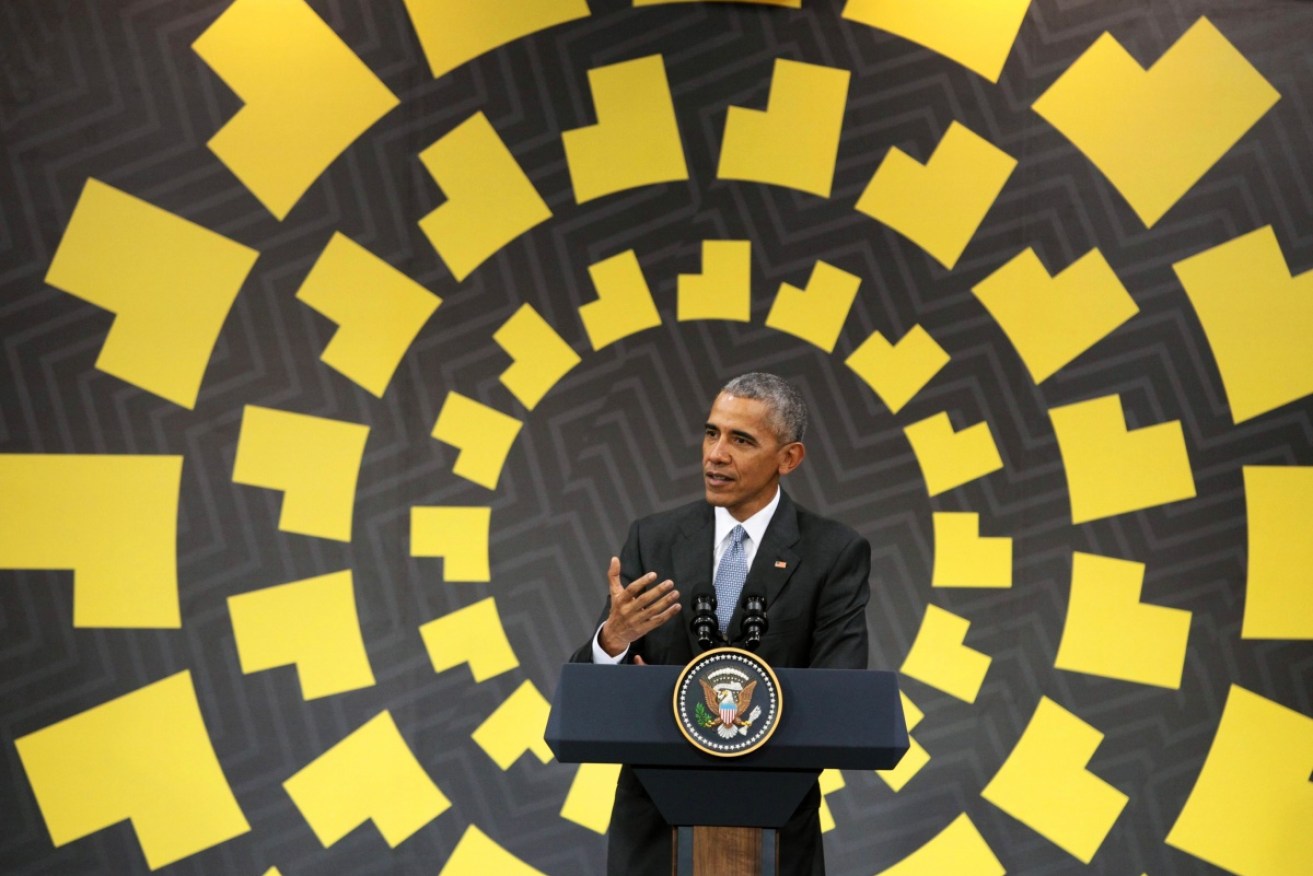The world is finally listening to workers

Outgoing US president Barack Obama calls for greater worker protections. Photo: AAP
The rise of Donald Trump to the White House has triggered a major shift in the focus of the world’s most powerful politicians, and everyday workers – nurses, teachers, carpenters and others – could be the big winners.
Mr Trump’s shock win sounded a warning to politicians everywhere: ignore workers at your peril. Malcolm Turnbull, the ACTU and now Barack Obama have spoken out about the very real issues that affect people with jobs and those who would like one.

Outgoing US president Barack Obama says trade protections for workers and the environment must be improved. Photo: Getty
In one of his last speeches on the global stage, Mr Obama, a fierce advocate of free trade, acknowledged that the prosperity gains of globalisation have not filtered down, as the gap between “the rich and everyone else” widened.
“That’s why I firmly believe one of our greatest challenges in the years ahead across our nations and within them will be to make sure that the benefits of the global economy are shared by more people,” he told reporters in Peru.
The world must “do trade right” by better protecting workers and the environment, he said.
Since Mr Trump’s victory, worker pay and conditions have returned to the global agenda, as well as rage at globalisation, foreigners and experts.
ACTU secretary Dave Oliver said the US result should be a “wake-up call for politicians everywhere” to pay closer attention to the concerns of workers.
“In the US, too many working people have been abandoned by the political mainstream and have now been swayed by Trump’s populist but empty and harmful rhetoric,” Mr Oliver told The New Daily.
Here in Australia, there is renewed attention on slow wage growth, which is hampering economic recovery and worsening the budget bottom line.
The budget’s underlying cash deficit will increase to $40.49 billion this financial year (2016-17), up $3.37 billion on what the government forecast in the May, accounting firm Deloitte predicted on Monday.
This is because wages, the single largest component of national income, will be 1 per cent smaller than the budget factored in, deteriorating tax revenues further, Deloitte’s economics team wrote.
Even this year’s doubling in the price of coking coal and 50 per cent boost to the iron ore price won’t be enough to overcome the wages slump, according to Deloitte.
In response, Treasurer Scott Morrison warned of an “earnings problem” in Australia, both for businesses and individuals. His preferred fix is a significant company tax cut, which many workers oppose.
In the US, Bernie Sanders and Robert Reich, two advocates for worker rights, have reinvigorated their campaigns after Hillary Clinton’s loss.
Inequality is worse in the US than Australia, but there is some good news for workers there. Federal Reserve boss Janet Yellen is strongly hinting at a rate rise in December, a sign of economic recovery.
Here at home, the data is grim. Last week, the Australian Bureau of Statistics reported that wages grew by only 1.9 per cent between October 2015 and September 2016, a record low, and that underemployment is rising.
And on the latest comparable data from the OECD, Australia has dropped down the global rankings for headline unemployment:
1. Iceland (2.9 per cent)
2. Japan (3.0 per cent)
3. Mexico (3.889 per cent)
4. Czech Republic / South Korea (4.0 per cent)
6. Germany (4.1 per cent)
7. United Kingdom / Norway (4.9 per cent)
9. USA / Hungary (5.0 per cent)
10. Australia (5.573 per cent)
Source: OECD (September 2016)
‘No easy answers, but three long-term solutions’
The University of Canberra’s Professor Phil Lewis, a labour market researcher, said much of the response to Mr Trump has been “ad hoc” and populist, with little supporting evidence.

Professor Phil Lewis says there are no easy fixes for inequality, and that unemployment is here to stay. Photo: Stuart Hay
Lifting the minimum wage, restricting imports of foreign goods and keeping out foreign workers are “gut reaction” solutions that will do little to fight inequality, Prof Lewis told The New Daily.
The economist gave three long-term, evidence-backed solutions: better healthcare, better education, and more public housing.
“Basics like housing, schooling and health are the kinds of things that can do more to improve equality than anything else,” Prof Lewis said.
“We’re not going to improve equality by artificially increasing wages or demanding that businesses do things that are not profitable for them. It just doesn’t work.
“Businesses take people on and pay them according to what they’re worth. And it’s a cruel fact that, unfortunately, people with less skills aren’t worth very much to employers.”









